“What do people get out of being in this group?” I ask Barbara.
“You’ll have to ask them,” she says. “But what I can tell you is, we don’t lose anybody. They come back week after week.”
“How long have you been going to the group?” I ask Trevor.
He sucks in his cheeks. “About four years. I came first and then Denise followed on,” he says. “I came to get away from my problems and she followed me!”
“He loves me really, don’t you?” says Denise, prodding her husband.
“Oh aye, yeah.”
“I thought I’d just come for a week, that was three years ago,” continues Denise. “I do suffer from depression and this takes my mind off it. It’s better than sitting in the house. I need something to keep me occupied. If I hadn’t got this, there’d be nothing.”
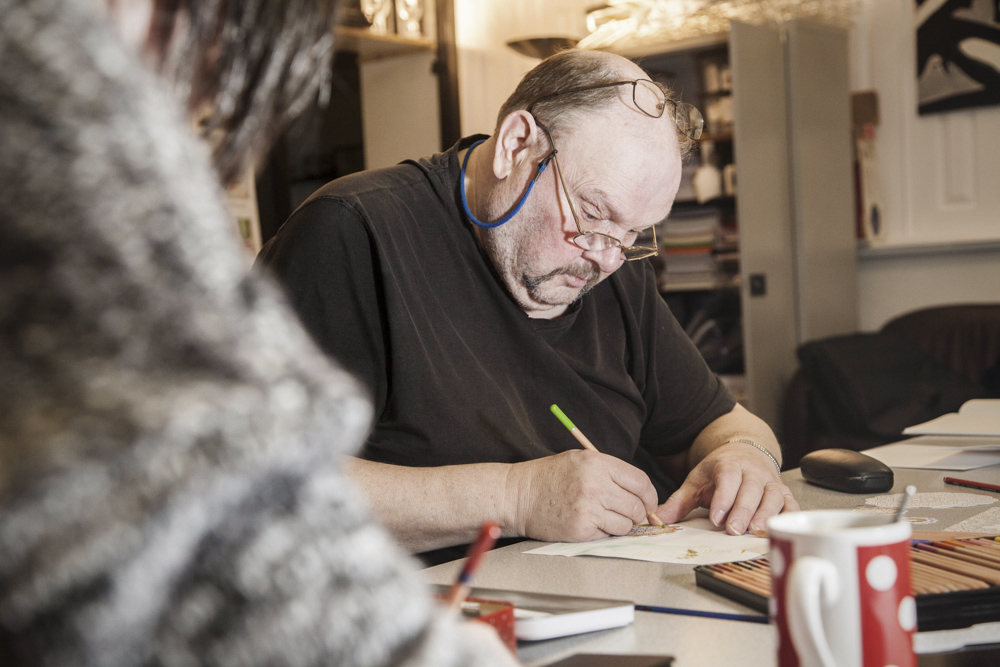 There are dozens of places like this across Manchester, thousands across the country. Small groups, surviving on next-to-no money, supported by selfless volunteers. Their compassion towards those with poor mental health or low income seems at odds with a bigger picture of insensitive cuts and austerity.
There are dozens of places like this across Manchester, thousands across the country. Small groups, surviving on next-to-no money, supported by selfless volunteers. Their compassion towards those with poor mental health or low income seems at odds with a bigger picture of insensitive cuts and austerity.
It’s difficult, probably impossible, to measure the savings these small groups make to the statutory services.
A weekly card-making session with this group of friends could mean Denise doesn’t tip up at the GP as often as she might.
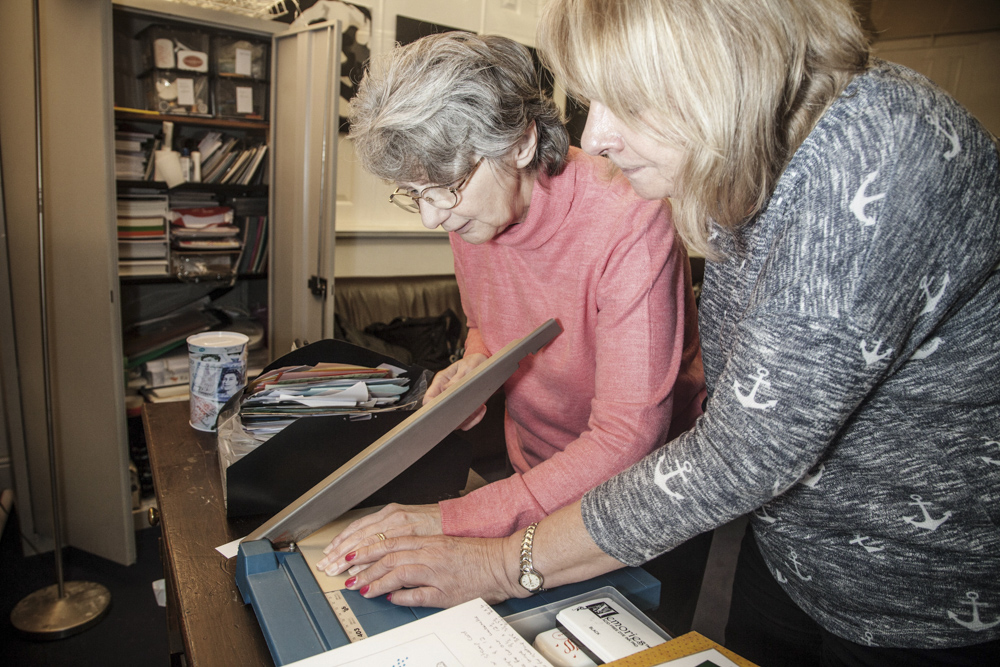 “We do rely on funding,” says Barbara, “Most people here are on benefits or low income. We charge £2 for the day but that won’t cover the rent or the materials.I’m strict about using top quality materials because I want people to be proud of what they’ve made.
“We do rely on funding,” says Barbara, “Most people here are on benefits or low income. We charge £2 for the day but that won’t cover the rent or the materials.I’m strict about using top quality materials because I want people to be proud of what they’ve made.
“Through the Fourteen programme Forever Manchester helped us out last year with running costs. We were able to buy lots of new materials.”
Barbara’s been on the Local Reference Group (LRG) for a couple of years now. It’s a sort of self help group as part of the Fourteen programme to support community groups in Harpurhey and Moston.
“It’s become like a little family,” says Barbara. “We’re very supportive of each other and we’ve expanded now as more people have joined us.”
“Do you feel a sense of connection with other people because of the LRG?” I ask.
“Oh yes. We’ve learnt lots about what else is going on. Although we’ve never felt isolated. Lou here at The Miners has been very good to us and,” – she nods in the direction of Broadhurst Park – “FC United have been very supportive as well.”
I take my tape recorder around the table again. “What about you Ann? How important is this group for you?”
“Most of my neighbours are either very old or have young families,” she says. “There’s no one my age. So this gets me out of the house, seeing somebody, talking to somebody. Sometimes I can open the front door and realise it hasn’t been unlocked for the past three days.”
Here’s the Facebook page for Barbara’s Creative Community group
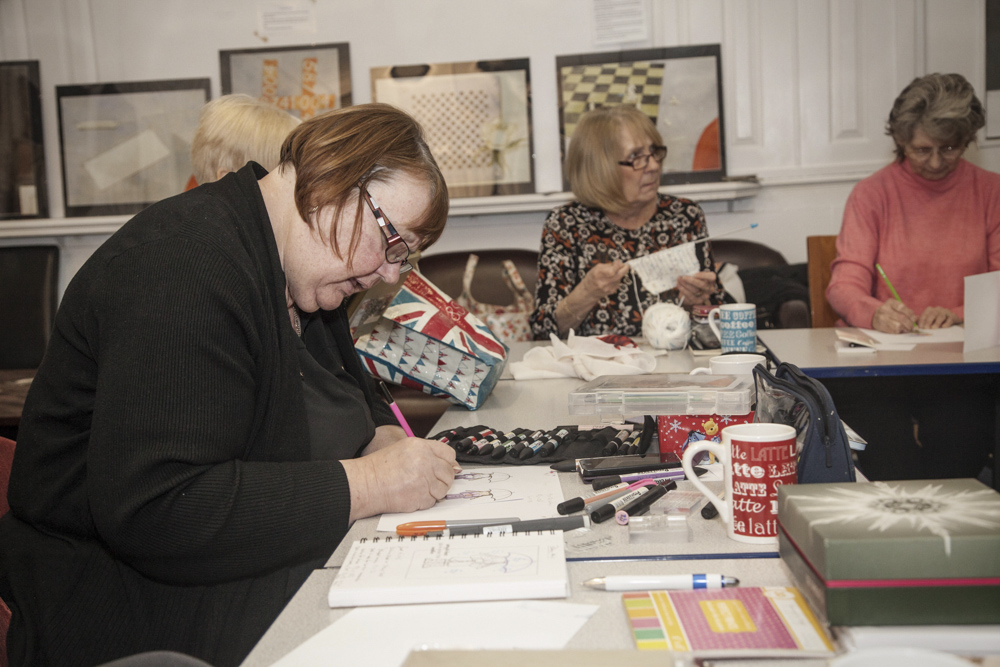 There’s Jean and Marie. And Kath ‘with a K’ clicking her knitting needles together as the others sponge pastel colours onto their artwork. Cath ‘with a C’ is the newest member of the group, recently moved from Moss Side to be near her daughter.
There’s Jean and Marie. And Kath ‘with a K’ clicking her knitting needles together as the others sponge pastel colours onto their artwork. Cath ‘with a C’ is the newest member of the group, recently moved from Moss Side to be near her daughter.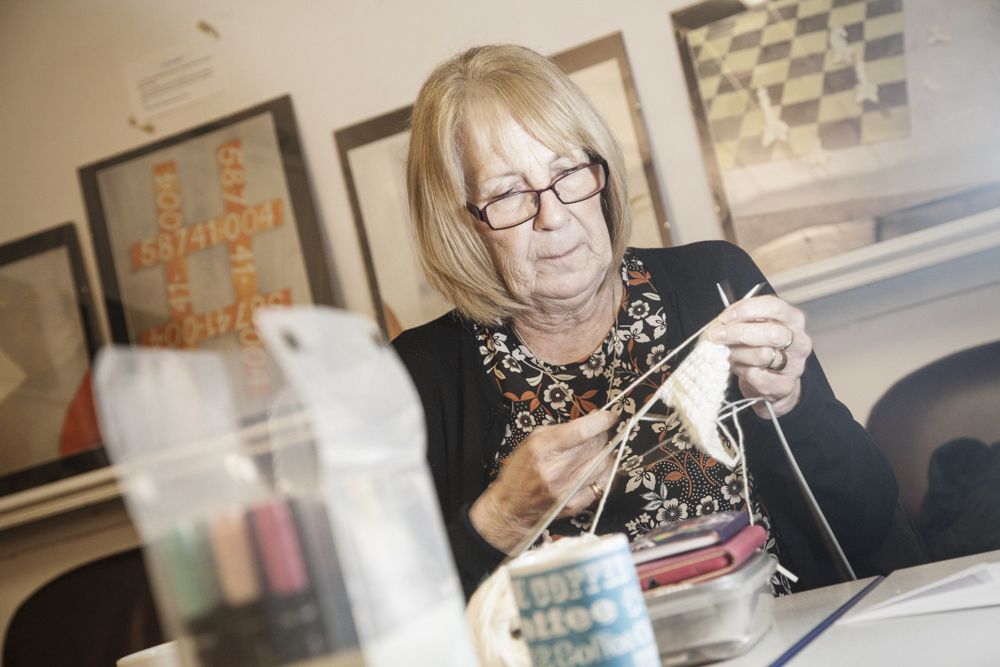 “I haven’t got the patience for all the fiddly bits,” says Kath, still clicking, “so I knit… and talk.”
“I haven’t got the patience for all the fiddly bits,” says Kath, still clicking, “so I knit… and talk.”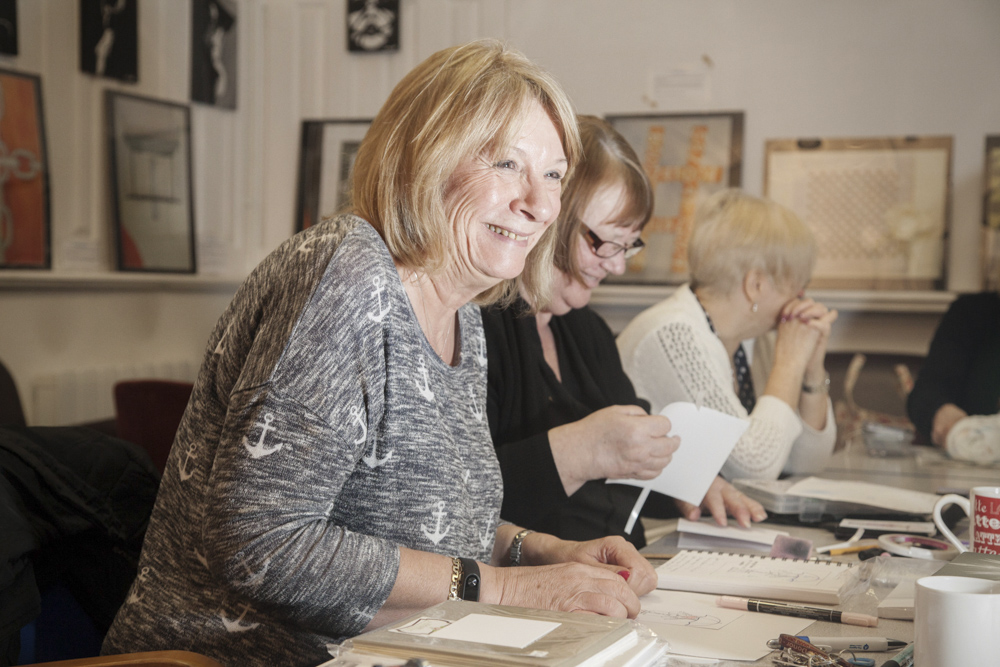 Originally from Portsmouth Barbara trained as a psychiatric nurse but later moved into community education. She worked at the Abraham Moss Centre and spent some years driving the Cheetham community bus. “So I’ve always worked with people and the community,” she tells me.
Originally from Portsmouth Barbara trained as a psychiatric nurse but later moved into community education. She worked at the Abraham Moss Centre and spent some years driving the Cheetham community bus. “So I’ve always worked with people and the community,” she tells me.